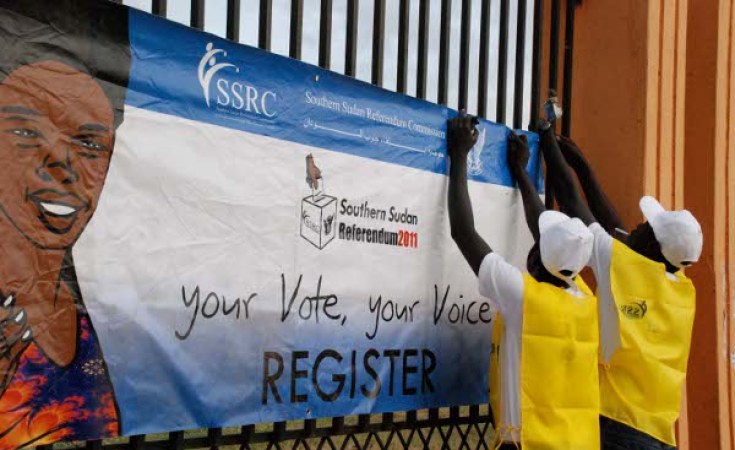Nairobi — Five years ago last October, an agreement between Sudan's mostly Muslim north and largely Christian south formally ended a 22-year civil war that killed an estimated two million people and displaced twice that many. The Comprehensive Peace Agreement, or CPA, set January 2011 as referendum day for the south to choose to remain part of Sudan or become an independent nation. The accord allowed for a unity government in Khartoum, the country's capital, prior to the referendum, with local self-government for the south during the transition period.
The pact, signed in neighboring Kenya, after long, complex and difficult internationally sponsored negotiations, has transformed the lives of the many southern Sudanese who have returned home and began to rebuild. Roads, schools and clinics are being constructed, and a civil society determined to hold any government accountable has begun to emerge.
But the region remains desperately poor, and despite the relative peace, incidents have continued to claim lives. More than 2,500 people were killed in the south last year and over 350,000 were newly displaced, according to estimates. Concern that conflict will recur is high. Delivery of basic services and emergency food is hampered by lack of infrastructure – there are still only about 50 km of paved roads in an area the size of France.
Among the most serious areas of contention between the north and south has been how to share the proceeds of the nation's oil wealth. Although located almost entirely in the south, until the CPA stipulated an interim sharing of revenues, oil earnings went to Khartoum.
As the poll approaches, agreement on conduct of the scheduled referendum in Abyei state, where much of the petroleum extraction takes place, seems increasingly unlikely. Although the southern government may agree to a compromise to allow the vote to proceed in other areas, popular sentiment against that path appears strong.
Other contested issues include the future of two other states, traditionally part of the south but not included in the vote, as well as definitions of citizenship and the rights of northern nomads who traditionally cross into the south in their annual grazing circuit. Alleged abuses in the registration process, which ended on 8 December, and potential obstacles to voting by southerners living in the north and in four African countries where large numbers of southern Sudanese live, are other potential points of dispute.
Allegations by church leaders and other groups that authorities in Khartoum have been registering prisoners, soldiers and patients at health facilities in the north, but without providing them with voting cards, is fueling fears that the northern government will try to invalidate the referendum. The CPA requires a threshold of 60 percent participation of registered voters for the results to be certified.
The international community, which worked hard to press both sides to compromise to achieve the peace accord, largely turned attention elsewhere after the signing. A recent high-profile campaign by activists and religious organizations has helped spur renewed diplomatic engagement from Europe and North America.
Sudanese President Omar al-Bashir, who has ruled Sudan since a coup in 1989, is the only sitting head of state to have been indicted for war crimes by the International Criminal Court, stemming from actions by Sudanese militias in the Darfur region of western Sudan, where the United Nations says 300,000 people have died. The administration of U.S. President Barack Obama has promised to remove Sudan from its list of state sponsors of terrorism if al-Bashir abides by the almost certain decision by southerners to become Africa's 54th nation. In a presidential memorandum on 19 November, Obama eased American sanctions to allow the export of U.S. computers for use in voting.
Developments in the remaining days before the high-stakes vote will be closely watched by the people and governments of both north and south, as well as by the world community. But Sudan experts warn that the referendum will not be an end to the story but the beginning of a challenging period, when all parties will need to cooperate to avert a return to a war that could destroy the fragile peace the south now enjoys.


